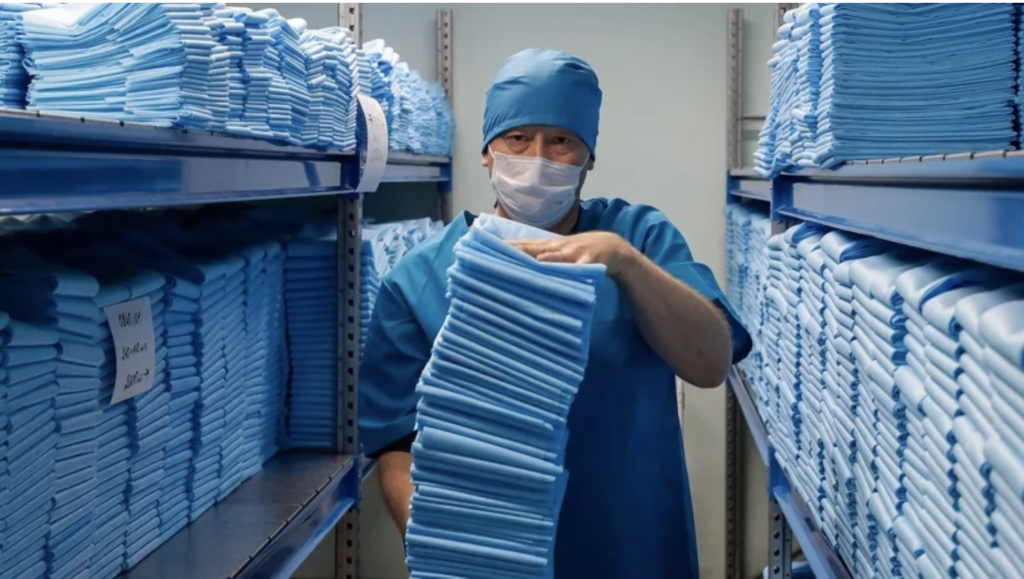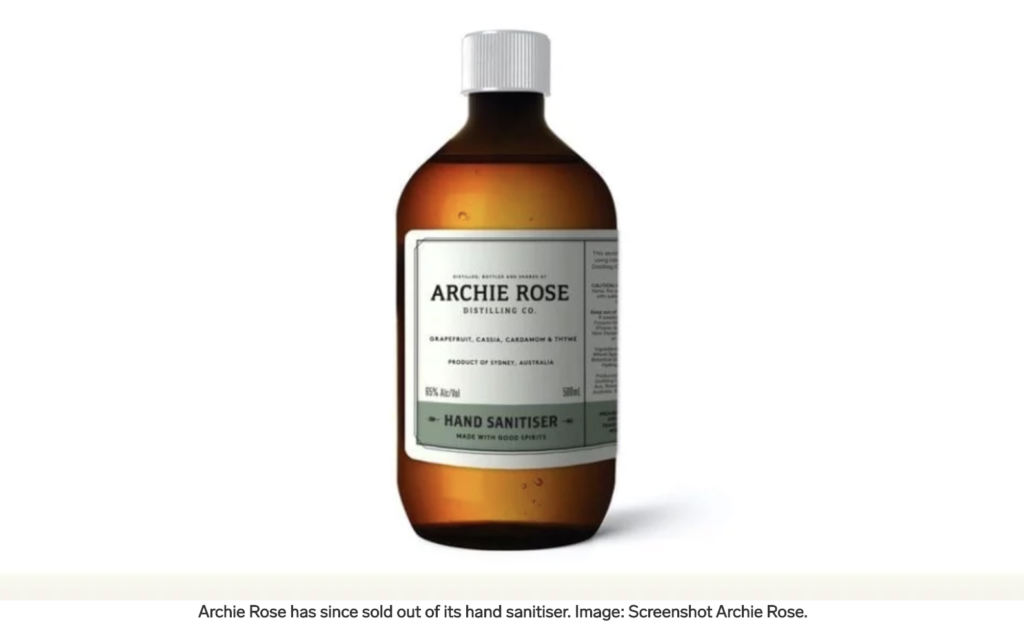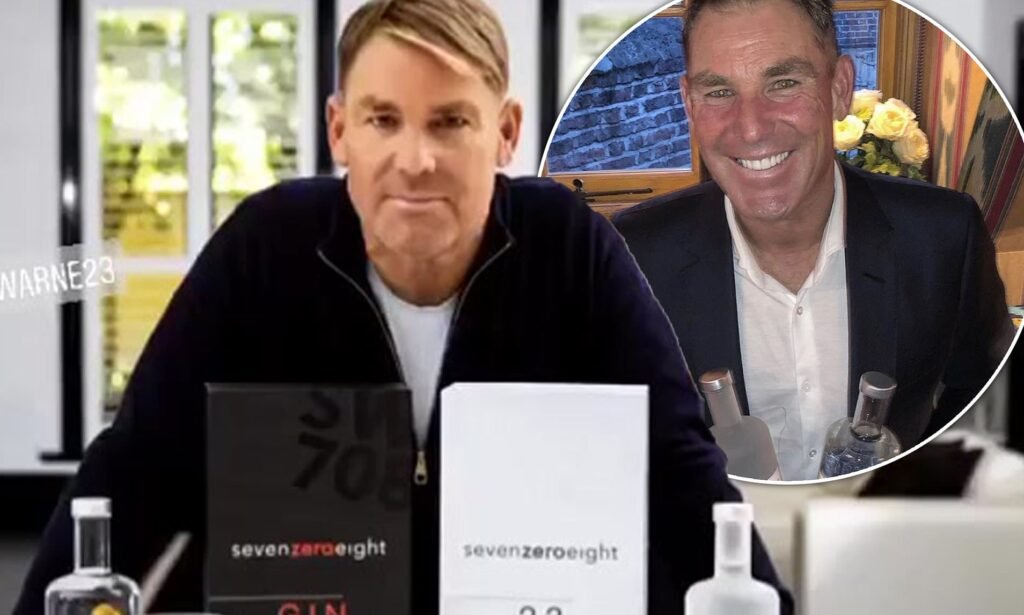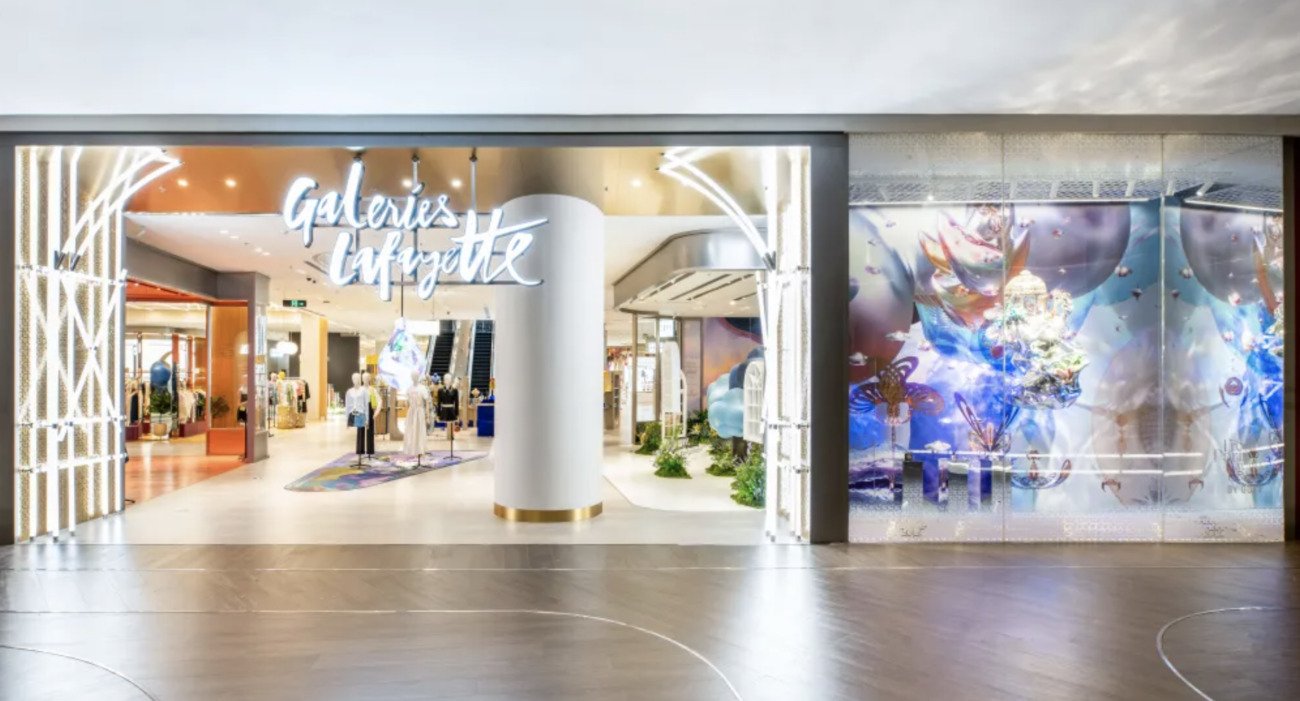How Retailers & Brands Are Responding to Covid-19 Crisis
In these times of intense hardship and global pandemic, some retailers are responding by rolling up their sleeves, changing their working models and helping the cause. Others have been fast to pivot, finding new ways to connect with
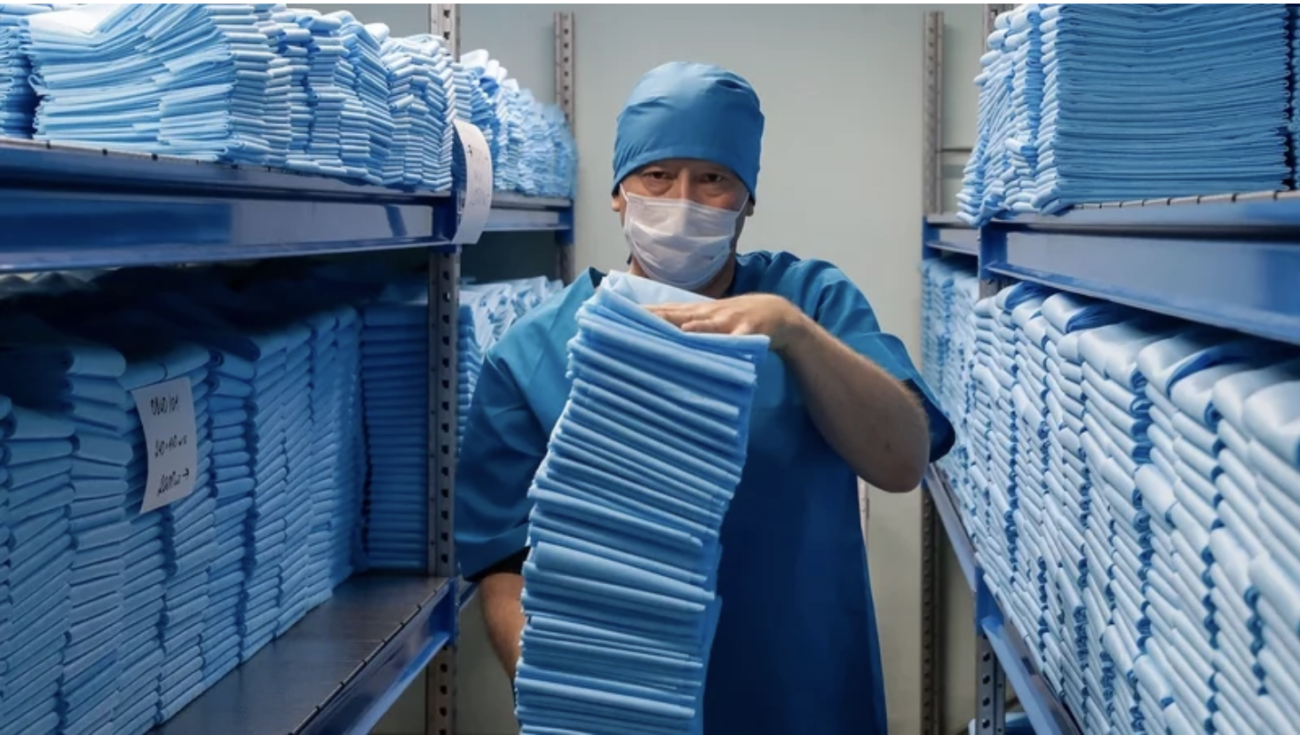
In these times of intense hardship and global pandemic, some retailers are responding by rolling up their sleeves, changing their working models and helping the cause. Others have been fast to pivot, finding new ways to connect with their customers and it’s here I believe we will see the rise of the Virtual Experience.
What I find exciting is that through all of this, creativity will be the ingredient that keeps retailers and brands afloat.
Zara offers to make scrubs for Spain’s coronavirus-stretched hospitals
Zara owner Inditex, whose polka dot dress was a high-street sensation in 2019, may soon be stitching hospital scrubs, helping its home country Spain fight the coronavirus epidemic.
Inditex last week said the epidemic had shut nearly half its stores around the world.
The company said it was studying converting part of its textile manufacturing capacity in Spain to produce hospital gowns.
It also said it would make available to Spain its vast logistics and supplier network, especially in China, to “meet Spain’s emergency needs of both medical and textile materials” such as protective masks, gloves, goggles and caps.
It said it had already donated 10,000 masks and another 300,000 were due to be sent by the end of the week.
Spain has been affected more by the coronavirus than any other European country except Italy, and accounts for the fashion retailer’s largest network of stores by far.
The Company Behind Louis Vuitton Is Now Making Hand Sanitizer for French Hospitals
LVMH will produce 12 tons of hand sanitizer during the COVID-19 coronavirus pandemic.
Louis Vuitton owner and French luxury goods company LVMH announced on Sunday that it will start making hand sanitizer and distributing it free of charge to hospitals in France to help the country fight the COVID-19 coronavirus outbreak.
This move comes as France is in the middle of a nationwide shortage of antiviral supplies amid the coronavirus pandemic.
LVMH is set to produce around 12 tons of hand sanitizer this week, which will be delivered to 39 public hospitals in Paris.
“I wish to thank LVMH for acting so quickly,” the Chief of Paris Hospitals Martine Hirsch told AFP. LVMH made and confirmed their offer to make hand sanitizer for hospitals over the span of the weekend.
While hospitals in Paris have not completely run out of hand sanitizer just yet, their supplies are running increasingly low, according to a spokesperson for the Paris hospital system.
Due to the hand sanitizer shortage, some pharmacies have started limiting customers to one bottle per person.
Meanwhile, the French government has ordered retailers to limit the price of a single 100ml bottle of hand sanitizer to no more than $3.30 after some businesses attempted to profit off of the shortage.
In its continued efforts to contain the spread of the coronavirus, France has also shut down restaurants and non-essential stores, which went into effect on Sunday.
Gucci, and now Prada make medical face masks
Prada is the latest big-name fashion brand to turn its production lines, usually focused on elegant blazers and blouses, to meet needs arising from the coronavirus crisis. Yesterday it said it would produce 110,000 masks by 6 April, while Gucci has said it will make more than 1m and Yves Saint Laurent and Balenciaga – both of which, like Gucci, are owned by Kering – will also begin manufacturing them.
High-street brands are similarly shifting their focus. Last week, Spanish-owned Zara pledged to produce surgical masks, saying it had already donated 10,000 masks and a further 300,000 were due to be sent by the end of this week. Over the weekend, H&M Group said it would be rearranging its supply chain to produce protective equipment for hospitals and healthcare workers.
The luxury conglomerate LVMH, which owns Dior, Fendi, Louis Vuitton and Givenchy, announced last weekend that it would be supplying the French authorities with more than 40m face masks in the coming weeks, having agreed an order from a Chinese manufacturer. Kering has also said it will be purchasing 3m surgical masks from China to donate to the French health service, while Mango has announced it will distribute 2m donated face masks to Spanish hospitals.
In France, at least, the numbers of masks supplied are more than a drop in the ocean, with the 43m promised by LVMH and Kering sitting favourably alongside the 250m-strong order announced by the French government on Saturday.
It is hoped that brands might soon follow suit in the UK, with the British Fashion Council the not-for-profit organisation that promotes British design globally, last week asking those with “production capacity” to help with shortages. NHS workers in the UK have been speaking out against shortages of protective gear, with London paramedics being rationed to one face mask between two, despite the under-fire UK health secretary Matt Hancock saying yesterday that he had ordered “millions of masks”.
In the US, some smaller brands are popping up to help: Christian Siriano and the kooky sustainable brand Collina Strada are making masks for doctors in New York. The outdoor retailer LL Bean has responded to calls for manufacturing help of masks in Maine, while President Trump has said he’s enlisted companies such as Hanes to start making them too. But, as the New York Times fashion critic Vanessa Friedman questioned on Twitter yesterday, unlike in France and Italy, for now: “Where are the really big brand names?”
The move to make masks follows on from LVMH’s announcement, earlier this month, that it would convert three of its factories, which usually manufacture perfumes under labels such as Givenchy and Guerlain, to the production of hand sanitiser.
Brewdog opens 102 virtual bars for people to enjoy a quarantine pint
Craft pub chain Brewdog has launched more than 100 virtual bars to host quizzes, live music and comedy shows throughout the coronavirus crisis.
The new 102 online bars will replicate each of the brewery’s pubs across the world to allow customers to connect with friends virtually after all UK pubs were forced to close at the end of last week to slow the spread of the outbreak.
Every Brewdog bar in the UK, Germany, Australia and the US will have its own online session. During the sessions there will be beer testing, home brewing masterclasses, Q&A opportunities and giveaways.
The pub chain will announce session details and events throughout the week on its social media channels.
BrewDog cofounder James Watt said: “Community has always been at the absolute core of what we do.
“And the role that community, and great beer play in our society is now more important than ever.
“Our online bars will be open for business on the 27 March at 6pm, and we are scheduling a series of amazing sessions with guest breweries, online tastings, games, entertainment. We’re looking forward to welcoming you all and sharing a beer.”
Last week east London-based Signature Brew launched a “Pub in a Box” for those self-isolating amid the coronavirus outbreak.
Founder Sam McGregor said the Pub in a Box will include a core range of beers, beer glasses, beer mats, a vinyl record, pub quiz, a playlist and snacks. The brewery is also launching a click and collect service across its venues in Hackney.
A number of distilleries around Australia are now making hand sanitiser, including Bundaberg Rum and Archie Rose
Alcohol distilleries around Australia have been shifting production to make hand sanitiser amid the coronavirus outbreak. These include Archie Rose, Bundaberg Rum and Manly Spirits Co.
Cricket legend Shane Warne’s distillery SevenZeroEight is also producing hand sanitiser.
Following the nationwide shutdown of pubs and clubs in Australia amid the coronavirus pandemic, we’ve rounded out a list of distilleries that have turned their production capabilities toward hand sanitiser.
Sydney-based spirits company Archie Rose rolled out its own brand of hand sanitiser in response to the coronavirus pandemic.
The company shifted production from spirits to make 4,500 500ml bottles of hand sanitiser, which have since sold out.
The hand sanitiser formula is based on the World Health Organisation and Australian Department of Health guidelines and ingredients selected by the company.
Archie Rose founder Will Edwards said on the company’s website, like all businesses, Archie Rose is “facing some incredibly difficult times”.
“We’re in a unique position to manufacture this essential product – with the required federal licences, dangerous goods approvals, access to raw materials and expertise – and so we’re now making hand sanitiser our production focus,” he said.
Edwards added that the company will produce hand sanitiser for as long as it can.
“We will continue to produce sanitiser for as long as we can, or as long as is required and this will also support the redeployment of as many of our full time bar staff as possible to assist in filling, packaging and shipping the product,” he said.
With the demand for hand santitiser skyrocketing, Manly Spirits Co also started producing it and the company’s distillery in Brookvale, Sydney.
Manly Spirits is offering its hand sanitiser – with a gin aroma – to community group, charities and commercially. It’s also offering a free 50ml bottle with every 700ml spirits bottle purchased.
Bundaberg Rum and Beenleigh Rum
Over in Queensland, the Beenleigh and Bundaberg Rum Distilleries have also joined the hand sanitiser bandwagon, with the state government reaching out to them directly for it.
Beenleigh Rum, the oldest distillery in Australia, will begin producing hand sanitiser this week and will supply it to the Queensland government for distribution to schools and frontline workers.
Bundaberg Rum will donate 100,000 litres of ethanol to the state government, which is enough to make around 500,000 bottles of hand sanitiser.
Angelo Kotses, owner of the Beenleigh Distillery and Managing Director of the Bickfords Group of Companies said in a statement the idea to switch to hand sanitiser came from a mission to keep its workers safe.
“Ethanol is the key ingredient of hand sanitiser, and we already produce ethanol for our alcohol products,” he said.
“We originally planned a small run of only 1500 cartons, but when the Queensland Government approached us we were more than happy to help by providing hand sanitiser for essential needs throughout the state.”
David Smith, managing director of Bundaberg Rum parent company Diageo Australia, said in a statement the company had a duty to support the community during this time.
“Bundaberg Rum is a Queensland icon, we’ve felt the love of Australians since our distillery was first established more than 130 years ago in 1888,” Smith said.
“At a time like this we will always step up and contribute when Australians need it most.”
The state government is also looking for more manufacturers around the state that can make hand sanitiser.
Prohibition Liquor Co.
South Australian Distillery, Prohibition Liquor Co decided to make a batch of hand sanitiser as well, producing 200, 100ml bottles.
In an Instagram post, the company said it is not only using the sanitiser and its site, but giving one away with every 500ml or 700ml bottle of gin sold.
SevenZeroEight
Australian cricketer Shane Warne’s Western Australian distillery SevenZeroEight started making medical grade 70% alcohol hand sanitiser on March 17. The company will produce hand sanitiser until further notice.
“This is a challenging time for Australians and we all need to do what we can to help our healthcare system combat this disease and save lives,” Shane Warne said in a statement. “I am happy SevenZeroEight has the ability to make this shift and encourage others to do the same.”
Wise Wine
Wise Wine in Western Australia has also began producing its own organic hand sanitiser.
Ethanol for the company’s spirits is distilled on site.
Hand sanitiser from Wise Wine costs $55 for a 700 mL bottle and you can get a maximum of two.
Sourced via RTE news, Global Citizen, The Guardian, City.A.M and Business Insider
 English
English


